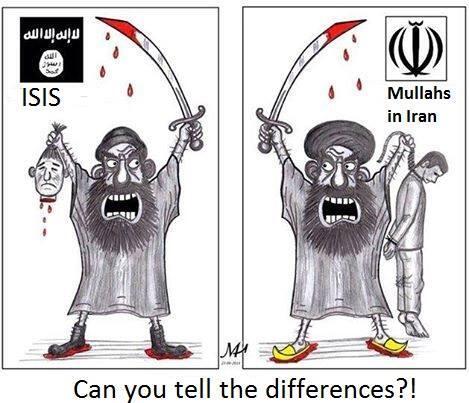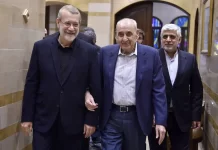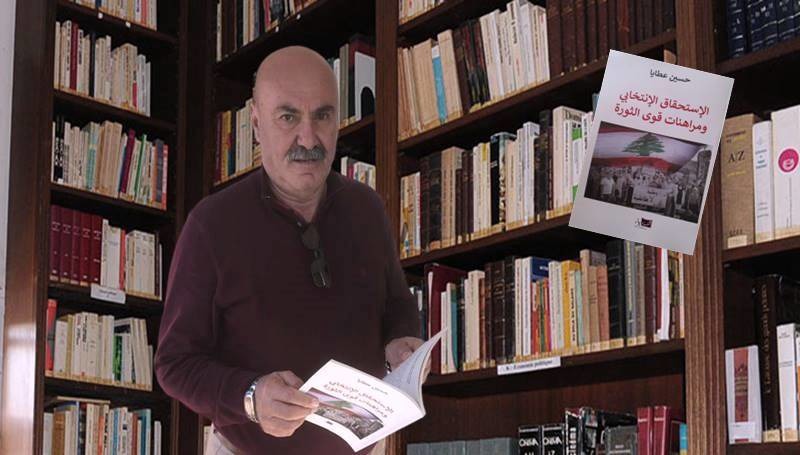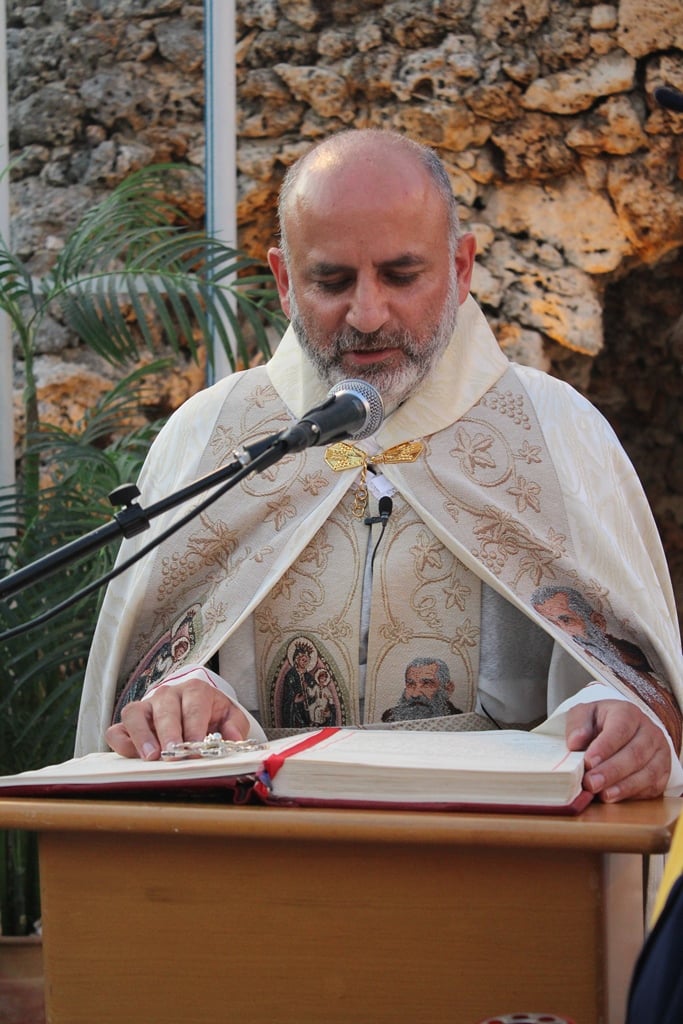The Iranian year in Syria
Thursday, 1 January 2015
Abdulrahman al-Rashed/Al Arabiya
We have entered a year that carries with it unresolved regional wars, such as the Syrian crisis which pumps danger into other areas. The reason is not in the struggle between the two Syrian parties: the opposition and the government, but in the struggle between Middle Eastern countries. If the Iranians succeed at keeping the Syrian regime headed by Bashar al-Assad, they will have practically taken over Iraq, Syria and Lebanon. Syria is the key to Iraq’s security. Therefore, Iran will have succeeded at imposing its presence over the Gulf region, and it is natural for the United States to recognize the new regional reality which may change the old balance of powers – a balance which lasted for decades in the region.
What’s interesting is that the Iranians’ victory will not be achieved in military battles on the ground but through political maneuvers. On the ground, their ally, Bashar al-Assad has been for two years besieged in the capital Damascus and he only exercises control over one third of Syria. As for Iraq, the situation of the central authority is weak and relies on foreign and domestic support.
Iran can score a political victory where it has failed militarily with two diplomatic maneuvers: The first one seeks to convince the West that it can confront rebellious groups, like the Islamic State of Iraq and Syria (ISIS) in Syria and Iraq. It’s the first time in the history of the republic that Iran participates in fighting alongside American troops. Iran is also fighting using its forces and military experts on the ground in Syria and Iraq. This Iranian move is due to Gulf reluctance and the Egyptian absence.
The second seeks to convince Arab states which are distant from the Syrian dispute, like Egypt, with political solutions, therefore pushing the Gulf countries to concede defeat in confronting the Iranian regime in Syria which is still represented by Assad who succeeded his father in 2001. Egypt remained distant from the Syrian crisis because it was preoccupied with its own revolution. Egypt, has since the beginning adopted a negative stance regarding Syrian events. It has done so during the rule of the Muslim Brotherhood and under the presidency of Mohammad Mursi and it has also done so under the current administration of Abdel-Fattah al-Sisi. The Syrian regime has tried to appeal to the sentiment of the Egyptians for years, inventing the narrative that there’s a conspiracy against Arab armies. It has thus tried to appeal to the sentiment of the Egyptian pride in its armed forces, and we all know that there’s a huge difference between the Egyptian and Syrian military institutions. The latter one represents a small sect and uses security forces and the army to serve its own interests. The Russians helped advance this maneuver by helping the Iranians market the idea of establishing a government that includes opposition figures but with Assad remaining as president. This would keep the regime practically intact.
“A Syrian reconciliation based on keeping the regime without making real concessions is a major mistake which will immediately empower the Iranians in Iraq and in the Gulf later.”
Abdulrahman al-Rashed
As for the Egyptians, they don’t see Iran as a direct threat except via the perspective of the balance of influence and regional interests. I am confident that if the Mubarak’s regime was still present, Egypt would have adopted a tougher stance to eliminate Assad and support the Syrian revolution. This is because Assad has been the Iranian proxy who fought Egypt in Gaza and the West Bank and who supported the Muslim Brotherhood. The current Egyptian government either doesn’t care much about how the world is developing around it or that it doesn’t understand it or that it reacts only to temporary battles – like its dispute with Turkey.
In my opinion a Syrian reconciliation based on keeping the regime without making real concessions is a major mistake which will immediately empower the Iranians in Iraq and in the Gulf later. This is something the United States will accept because it falls within the concept of its new vision of dealing with any reality established in the Middle East and within the idea of breaking free of its previous regional commitments. The Russians play a role in support of Iran and Syria, just like they used to do, and they will support chaos in the region which is of interest to Western Europe and the United States. I also think that Syria will not settle with a political solution that doesn’t put an end to Assad. The situation on the ground and the status quo will thus prolong as a result of Iran’s continued support for Assad and as a result of Turkey’s support for extremist armed groups, like al-Nusra Front – a type of support that goes against the context of the civil Syrian opposition represented by the coalition which in turn represents the entire Syrian spectrum. Most probably Turkey will change its stance after it’s too late. This Turkish support of extremist groups promotes Assad’s international position and polishes Iran’s international image.
This article was first published on Asharq Al-Awsat on Jan. 1, 2015.
العام الإيراني.. سوريًا
عبد الرحمن الراشد/الشرق الأوسط/01.01.15
نحن ندخل على عام يحمل معه ملفات الحروب الإقليمية، وتبقى القضية السورية هي قلب الأزمات التي تضخ الخطر إلى بقية المناطق. السبب ليس في النزاع بين الطرفين السوريين، الحكومة والمعارضة، بل لأنه صراع بين دول الشرق الأوسط. فإن نجح الإيرانيون في الإبقاء على النظام برئيسه بشار الأسد، سيكونون قد حققوا عمليا الاستيلاء على العراق وسوريا ولبنان. سوريا هي مفتاح أمن العراق. وتبعا لذلك، تكون إيران قد نجحت في فرض وجودها على منطقة الخليج، ومن الطبيعي أن تعترف الولايات المتحدة بالواقع الإقليمي الجديد، الذي يكون قد غير ميزان القوى القديم، الذي دام لعقود في المنطقة.
والمثير أن انتصار الإيرانيين لن يتم من خلال المعارك العسكرية على الأرض، بل عبر المناورات السياسية. أما ميدانيا، فإن حليفهم، الأسد، لا يزال منذ سنتين محاصرا في العاصمة دمشق، ولا يبسط سلطته إلا على ثلث سوريا، وفي العراق وضع السلطة المركزية ضعيف، ومحكوم بدعم داخلي وخارجي.
أما كيف يمكن لإيران أن تفلح سياسيا فيما فشلت فيه عسكريا، فإنه يعود إلى مشروع دبلوماسي من مناورتين؛ الأولى: إقناع الغرب بأنها تستطيع أن تواجه الجماعات المتمردة، مثل «داعش» في سوريا والعراق، وها هي إيران تشارك لأول مرة في تاريخ الجمهورية في القتال جنبا إلى جنب مع القوات الأميركية، في قصف مواقع «داعش»، وتقاتل بقوات وخبراء عسكريين على الأرض أيضا في سوريا والعراق. وهذا التطور الإيراني يحدث نتيجة التلكؤ الخليجي والغياب المصري.
والثانية: إقناع العرب البعيدين عن النزاع السوري، مثل مصر، بحلول سياسية، في واقعها تدفع الخليجيين للاعتراف بهزيمتهم في مواجهة النظام الإيراني في سوريا، الذي لا يزال يمثله الأسد منذ تسلمه الحكم بعد أبيه في عام 2001؛ مصر، لأنها انشغلت بثورتها بقيت بعيدة عن النزاع، وتبنت منذ البداية موقفا سلبيا من أحداث سوريا، في فترتي حكم «الإخوان» برئاسة محمد مرسي، وكذلك تحت إدارة حكومة عبد الفتاح السيسي الحالية. وقد حاول النظام السوري مغازلة المصريين لسنوات، مخترعا رواية أن هناك مؤامرة على الجيوش العربية، محاولا دغدغة الاعتزاز المصري بقواته المسلحة، وكلنا نعرف أن هناك فارقا شاسعا بين المؤسستين العسكرية المصرية والسورية؛ فالثانية تمثل طائفة صغيرة، وتستخدم الأمن والجيش لهذا الغرض. وقد أكمل الروس الدور بمحاولة تسويق المشروع الإيراني تشكيل حكومة تضم معارضين، وتبقى تحت رئاسة الأسد. عمليا، مجرد ديكور للنظام كما كان، وكما هو الآن!
وبالنسبة للمصريين، فلا يرون الخطر الإيراني يهددهم مباشرة، إلا من خلال منظور توازن النفوذ والمصالح الإقليمية. وأنا واثق، لو أن نظام مبارك قائم اليوم، لكانت مصر أكثر تشددا في إقصاء الأسد، ودعم الثورة السورية، لأنه كان رأس الحربة الإيراني الذي صارع مصر في غزة والضفة الغربية، ودعم «الإخوان». الحكومة المصرية الحالية إما أنها لا تبالي كثيرا بالعالم كيف يتشكل خارج حدودها، وإما أنها لا تفهمه، أو تختصر في ردود فعلها فقط على معاركها المؤقتة، مثل خلافها مع تركيا.
من وجهة نظري، يبقى الانجرار وراء مشروع المصالحة السورية المبني على إبقاء النظام دون تنازلات حقيقية، خطأ كبيرا، سيمكن الإيرانيين من العراق فورا، ومن الخليج لاحقا. وهو أمر ستقبل به الولايات المتحدة، لأنه يصب في مفهوم رؤيتها الجديدة، بالتعامل مع أي واقع جديد سيتشكل في منطقة الشرق الأوسط، والتحلل من التزاماتها الإقليمية السابقة. أما الروس فإنهم يلعبون الدور المساند لإيران وسوريا، كما كانوا، وسيدعمون الفوضى في المنطقة، لأنها في معظمها منطقة مصالح لأوروبا الغربية والولايات المتحدة. وفي رأيي، أيضا، سوريا لن تستقر بحل سياسي لا يحسم عسكريا الوضع على الأرض، وسيطول نتيجة إصرار إيران على دعم الأسد، من جهة، ومن جهة أخرى بسبب دعم الأتراك جماعات مسلحة سنية، مثل «جبهة النصرة»، خارج مشروع المعارضة المدني الذي يمثله الائتلاف، بطوائف وأعراق السوريين كلهم. والأرجح أن الأتراك سيغيرون موقفهم بعد أن يكون الوقت قد فات، وهم بدعمهم الجماعات المتطرفة يعززون وضع الأسد دوليا، ويلمعون صفحة النظام الإيراني.




















